How to use Samsung Galaxy Watch 4 to measure body composition
And how to know if you shouldn't use body composition analysis on your smartwatch
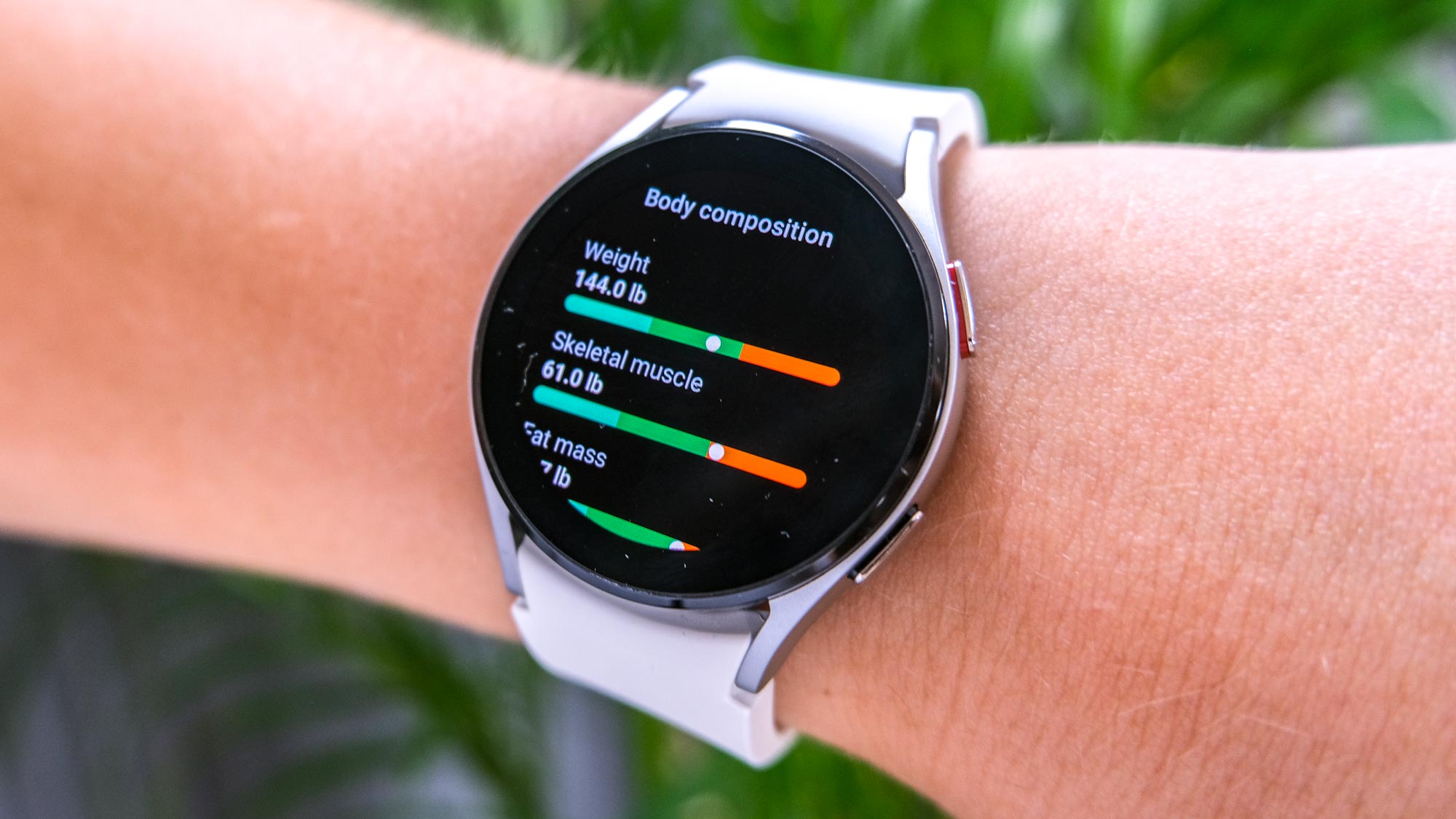
Knowing how to use Samsung Galaxy Watch 4 to measure body composition means you can start taking advantage of your smartwatch's standout health feature.
Bioelectric impedance analysis (BIA), a technology found on the best smart scales, uses a weak electric current to determine body composition. The body composition data gathered from the Samsung Galaxy Watch 4 includes body fat percentage, body mass index (BMI), muscle mass, bone mass, body water percentage and more.
- The best smartwatches we've tested, ranked
- Do you know how to set up Samsung Galaxy Watch 4?
- Read our Samsung Galaxy Watch 4 workout test
Taking a BIA reading on the Samsung Galaxy Watch 4 is easy and quick, especially compared to the effort it would take to get your physical makeup tested at a doctor's office. That said, you'll get a better understanding of your health by seeing a professional, so don't use the Galaxy Watch 4 body composition feature as a replacement for regular check-ups.
There are a few more things you should know about before using the body composition feature, including whether it's fit for your use in the first place. Here's what you should know beforehand, and how to use Samsung Galaxy Watch 4 to measure body composition in a way that's safe and fields accurate results.
Samsung Galaxy Watch 4 body composition: Is it safe? Is it accurate?
In general, it's not recommended that people with pacemakers or people who are pregnant use BIA. There is research suggesting those with pacemakers shouldn't experience adverse effects after using BIA, but you should check with your electrophysiologist or heart specialist first.
Experts also say BIA is safe during pregnancy, but again, get advice from your doctor. Consider using the body composition feature under professional supervision, too. Many smart scales have a "pregnancy mode" that disables BIA, but the Galaxy Watch 4 does not, so take precautions.
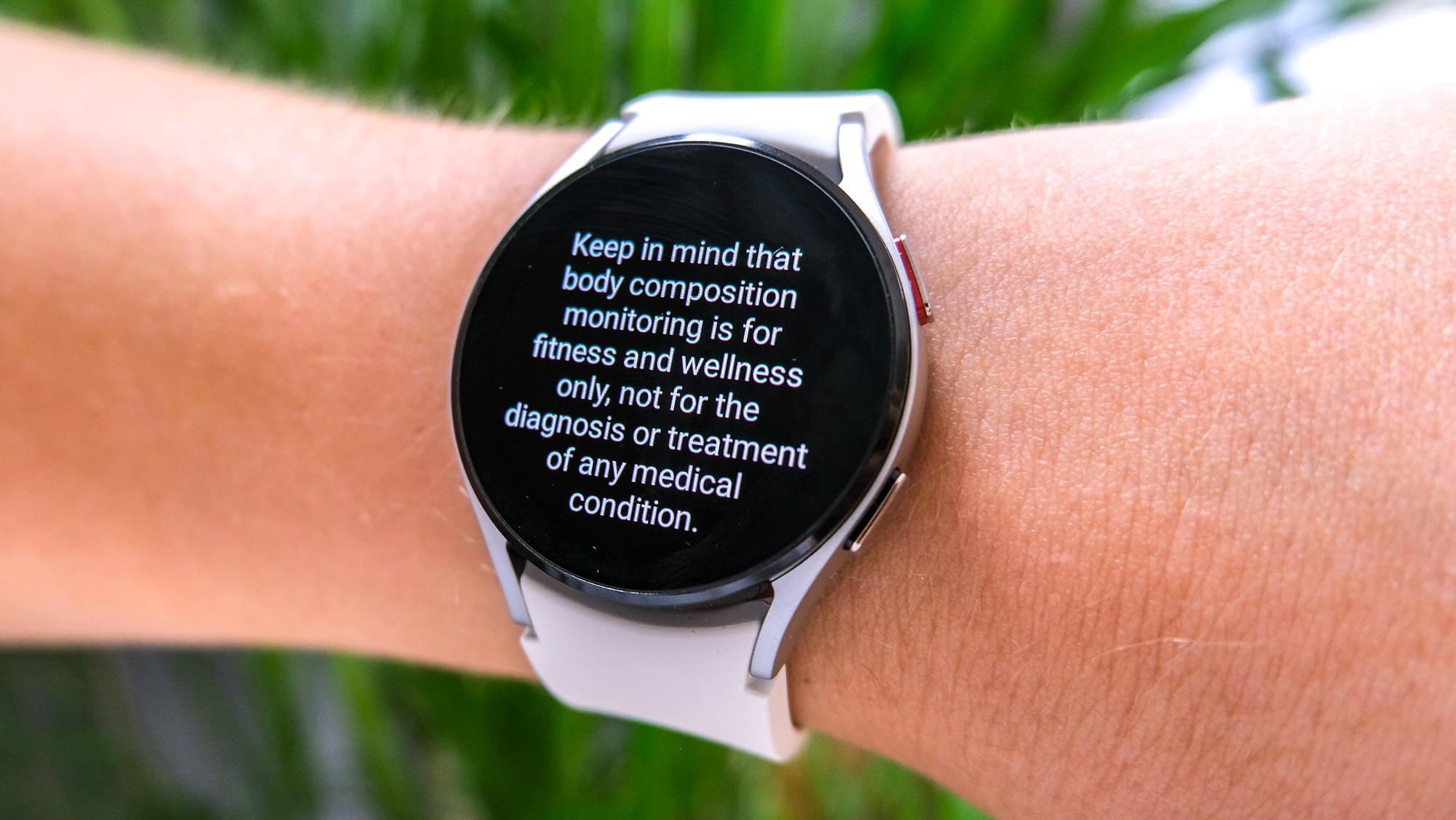
Additionally, Samsung says the measurements might not be accurate for those under 20 years old, but doesn't appear to put a true age restriction on the feature.
Sign up to get the BEST of Tom's Guide direct to your inbox.
Get instant access to breaking news, the hottest reviews, great deals and helpful tips.
In terms of accuracy for everyone else, we and fellow reviewers experienced varying degrees of similarity between our Galaxy Watch 4 and smart scale readings of body composition. If your goal is track changes to your body composition, taking readings at the same time every day (preferably the morning) is advised. You'll also want to follow the steps below on how to use Samsung Galaxy Watch 4 to measure body composition to achieve the best results.
How to use Samsung Galaxy Watch 4 to measure body composition
1. Step on a scale. Before you use the Galaxy Watch 4 body composition feature, you'll need to know your weight. We used the affordable Wyze Scale in our testing, but any scale — dumb or smart — will do.
2. Open the body composition app on your Galaxy Watch 4. It should come pre-installed in your tiles.
3. Enter your weight. Giving your Galaxy Watch 4 an accurate weight could field more accurate results. But again, consider consistency. Plan to take body composition readings at the same time you would step on a scale, say, first thing in the morning.
4. Move your watch higher on your wrist. You want it to sit more on your forearm than your wrist bones.
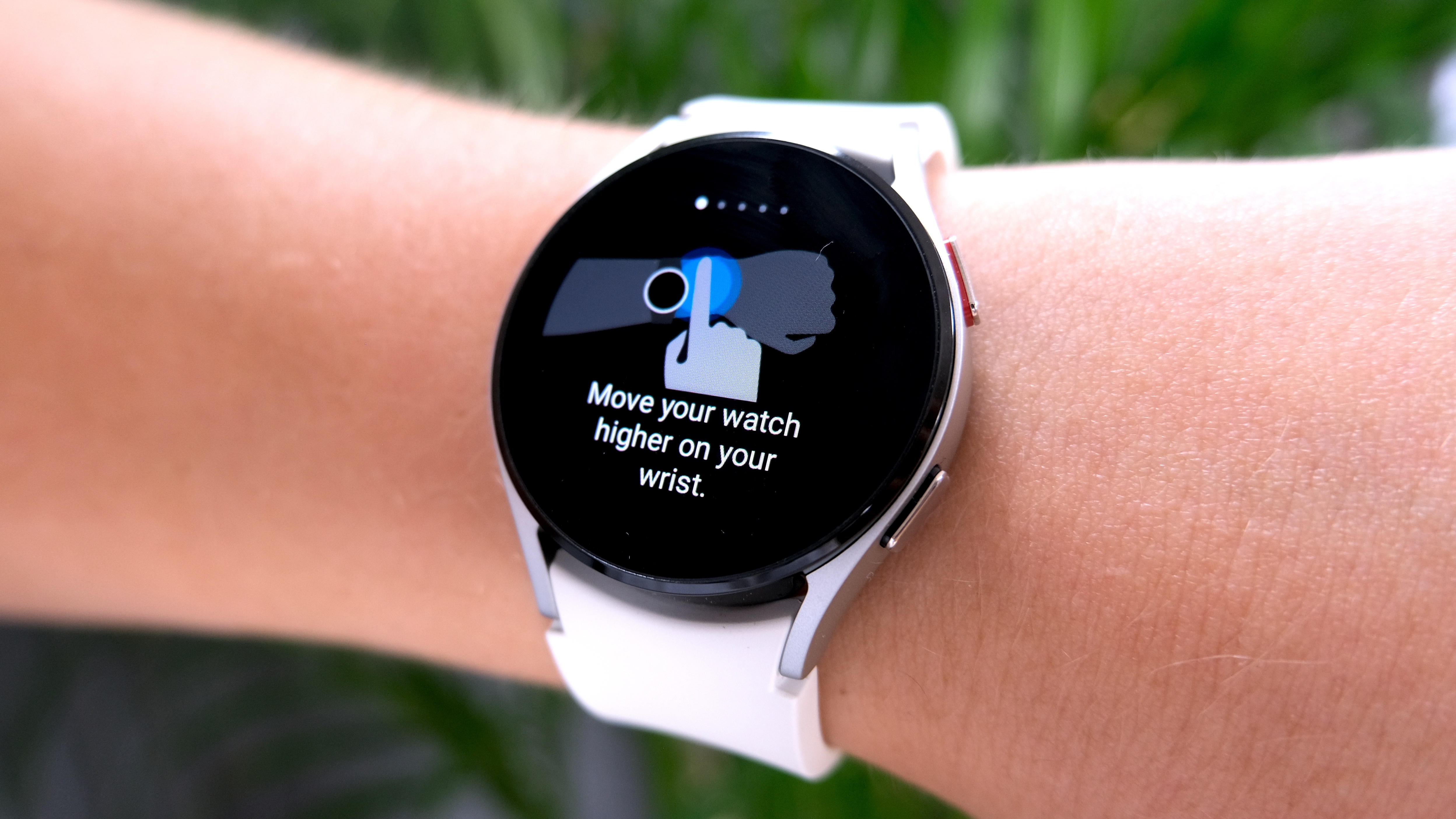
5. Place your middle and ring fingers against the set of crown keys with your palm facing up. Don't press down on either button, or you could accidentally exit the body composition app.
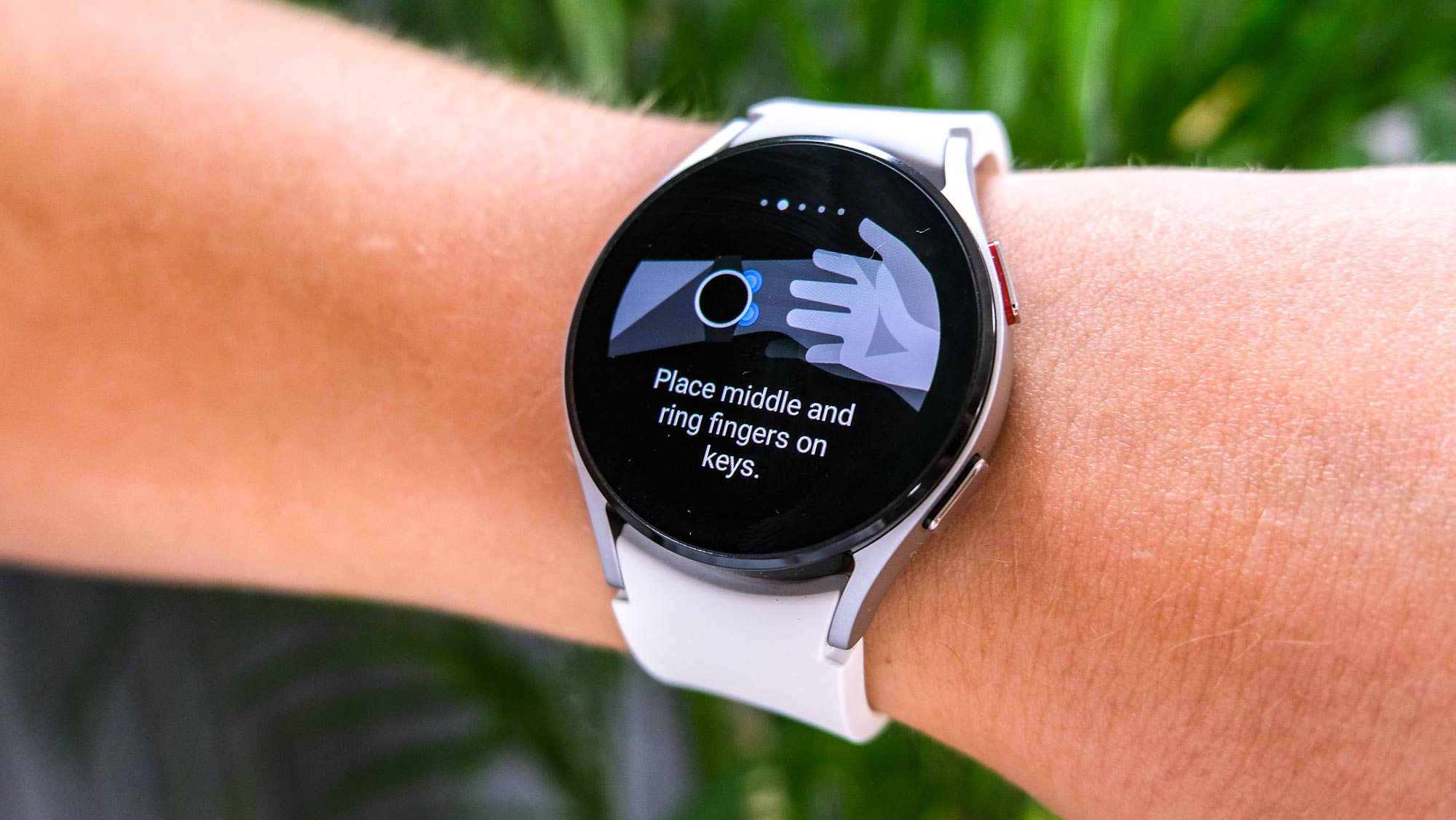
6. Raise the back on your non-smartwatch hand so it's not resting on your other hand. You don't want your hands to touch.
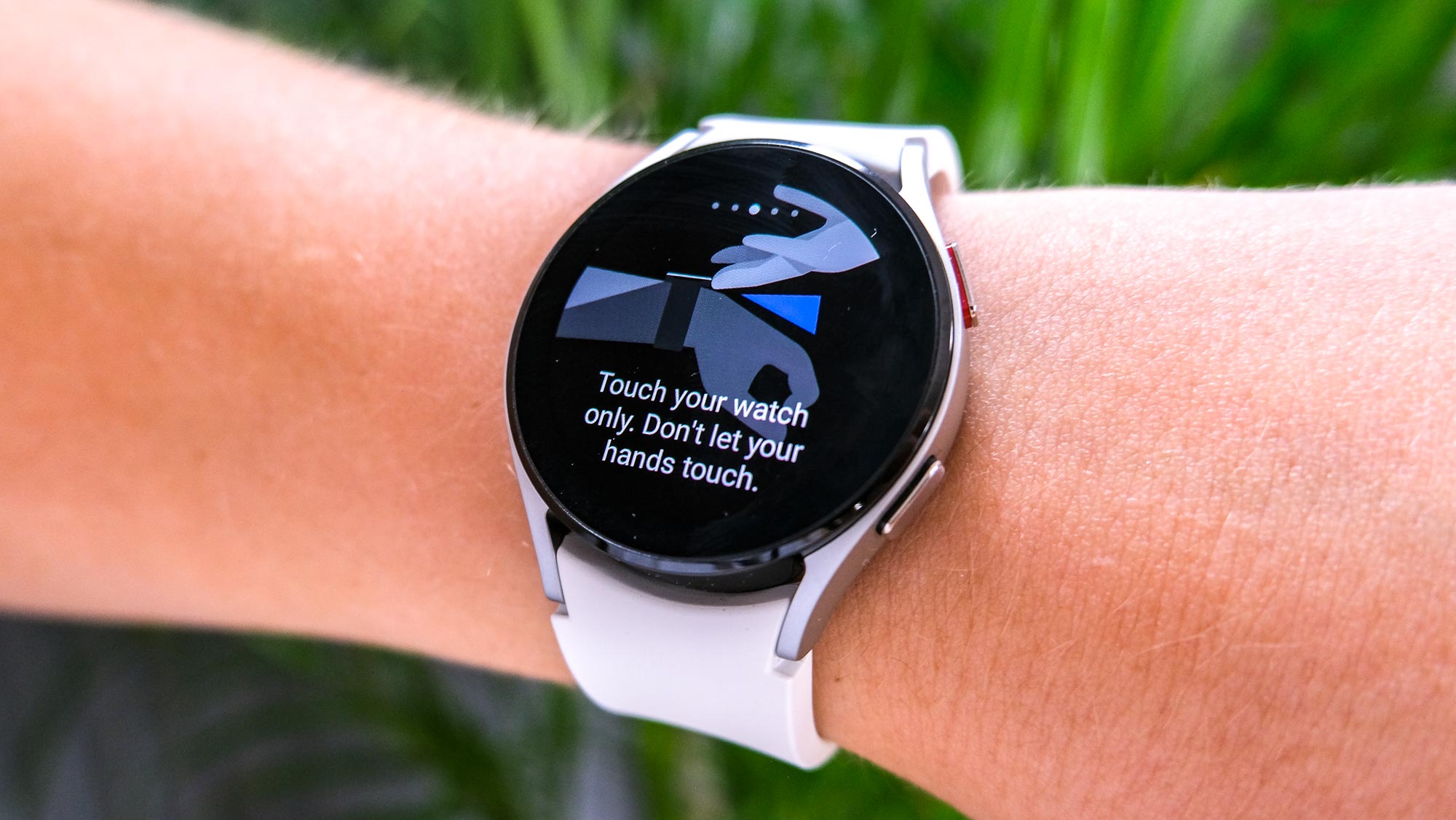
7. Raise both arms away from you body. You don't want your arms to be touching your torso. Yes, we know the position is awkward, but you're almost ready.
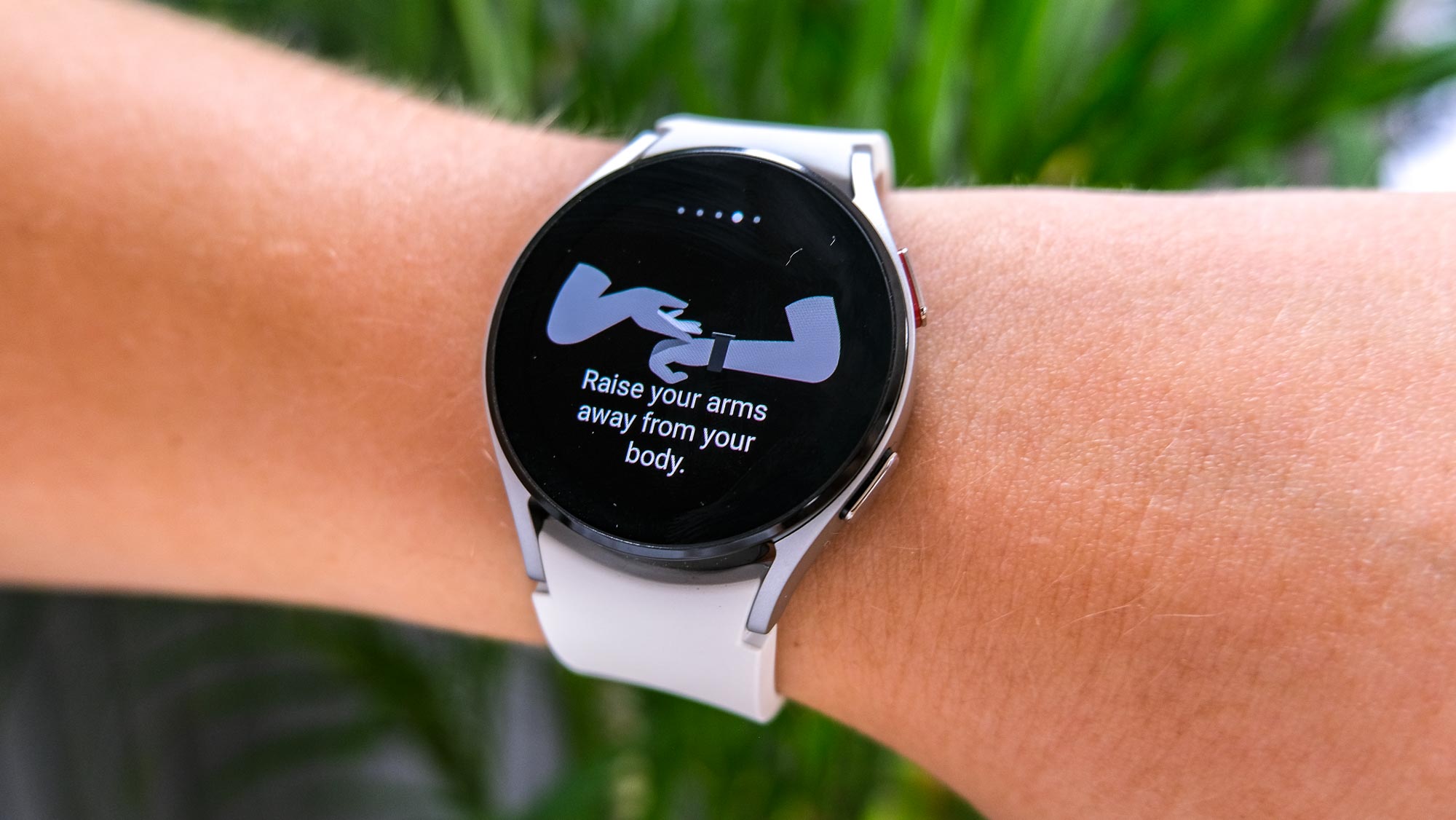
8. Press start and return to your position.
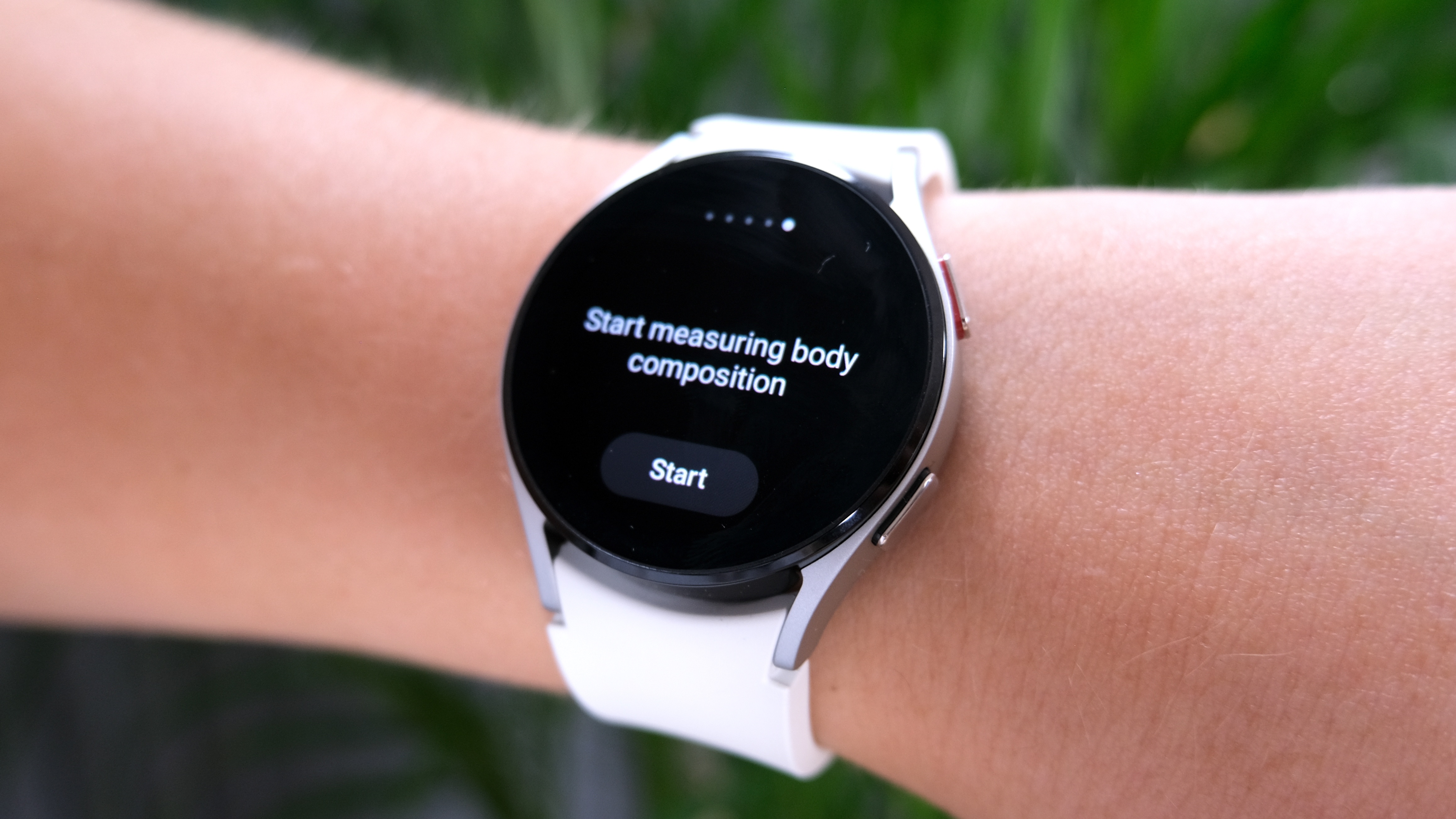
9. Wait 15 seconds for the Galaxy Watch 4 body composition reading.
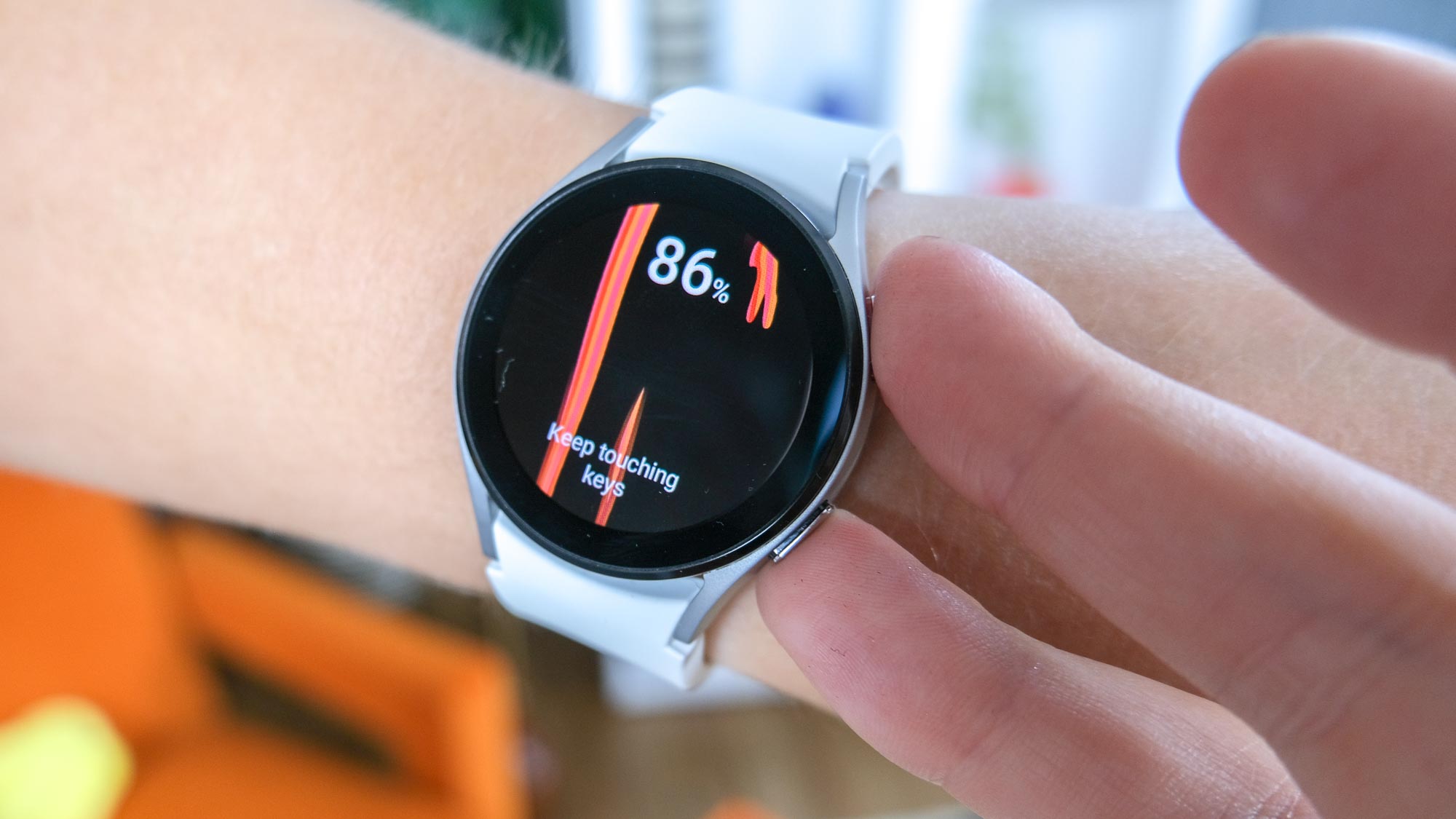
You should now see a summary of your body composition reading. You can review the metrics on your wrist, or go to the Samsung Health app on your smartphone for a deeper analysis.
Kate Kozuch is the managing editor of social and video at Tom’s Guide. She writes about smartwatches, TVs, audio devices, and some cooking appliances, too. Kate appears on Fox News to talk tech trends and runs the Tom's Guide TikTok account, which you should be following if you don't already. When she’s not filming tech videos, you can find her taking up a new sport, mastering the NYT Crossword or channeling her inner celebrity chef.

